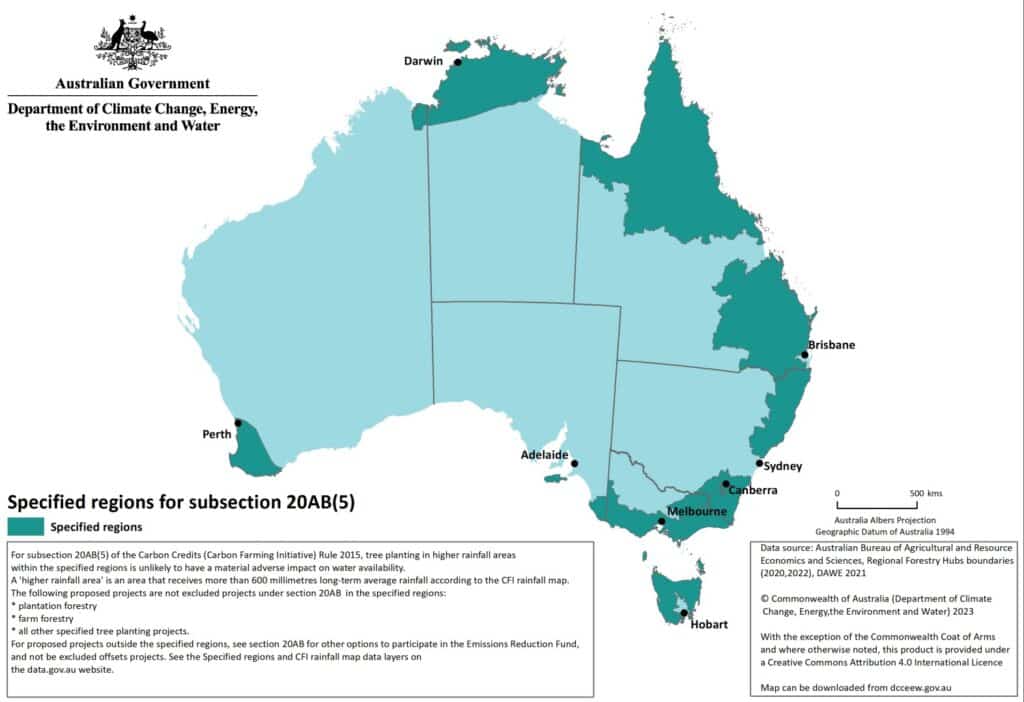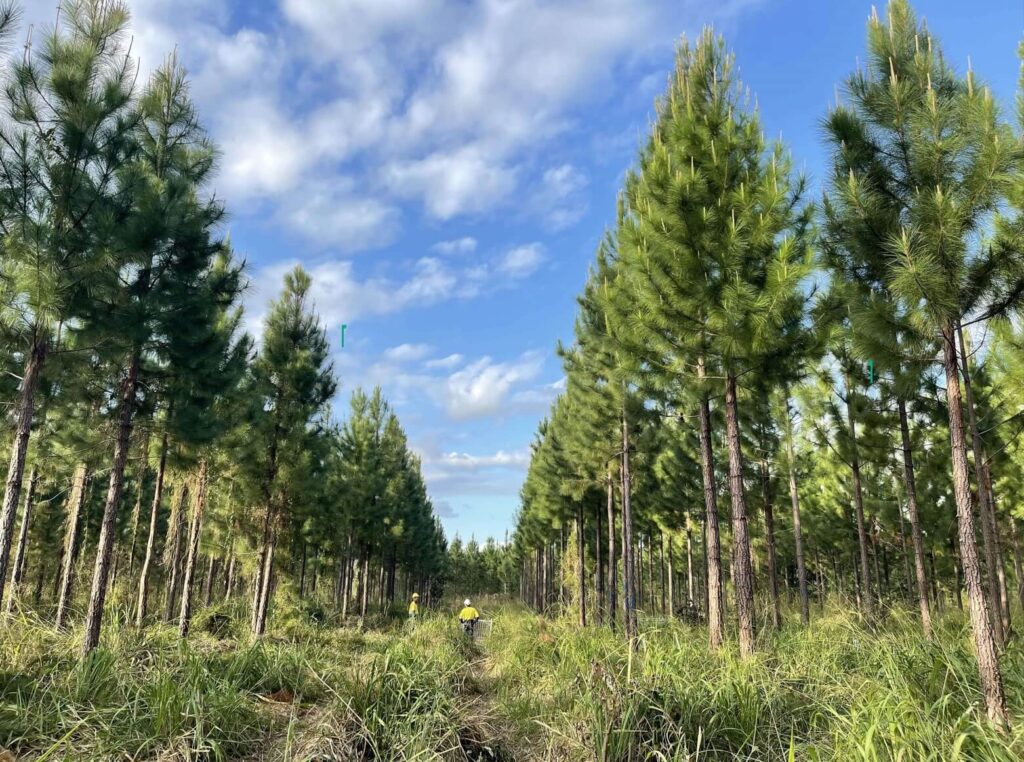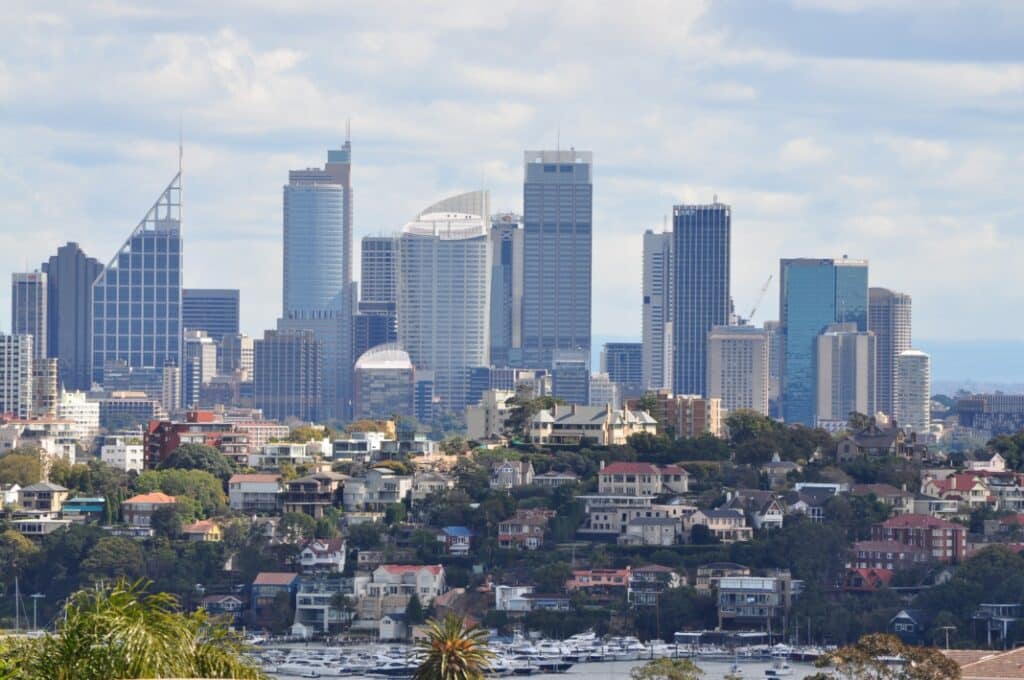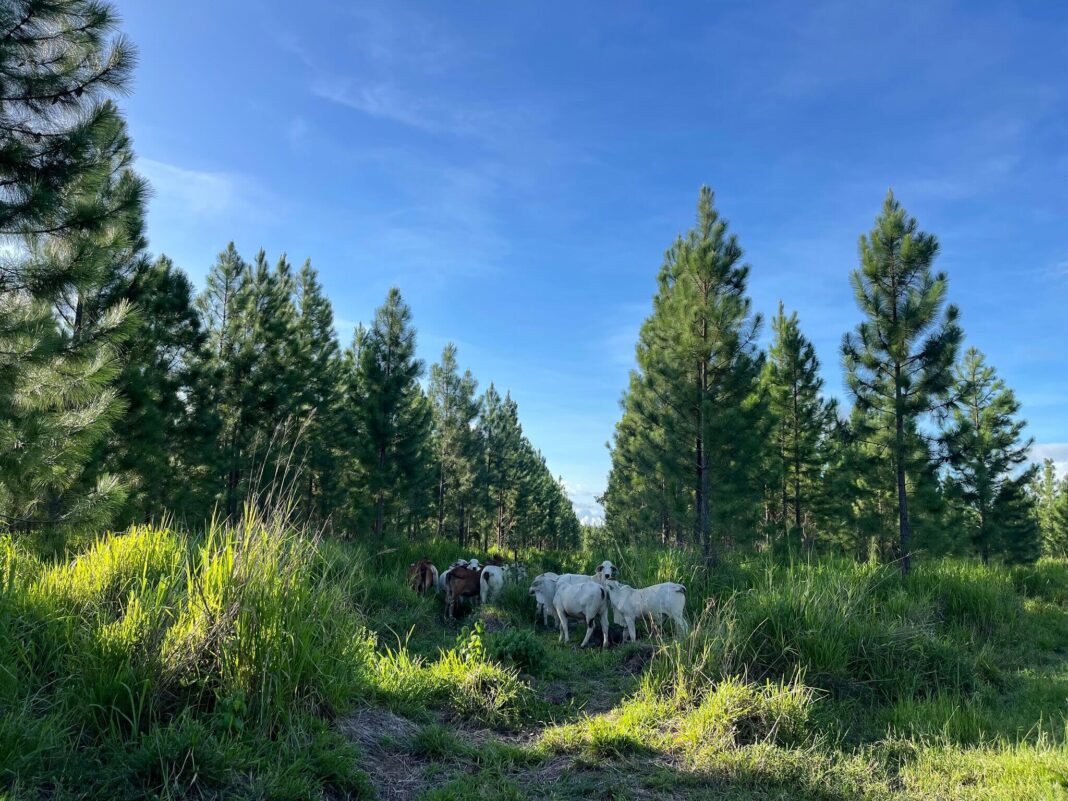Fifteen months after committing to remove the ‘water rule’, the Australian Government has abolished regulatory barriers preventing new timber plantings from participating in the Emissions Reduction Fund (ERF).
The ‘water rule’ refers to added conditions that plantation forestry and other tree planting projects in high rainfall locations need to meet to participate in the Australian Carbon Credit Unit (ACCU) Scheme.
Minister for the Environment and Water Tanya Plibersek said, “The water rule was always an ad-hoc approach to address the much broader issue of water interception by plantations.”
Minister of Agriculture, Fisheries and Forestry Murray Watt reiterated the Government’s support for carbon investment in long-rotation softwood and plantation plantations.
“New long-rotation softwood and hardwood plantations will help Australia meet future demand for timber while ensuring a sustainable and prosperous future for the forestry industry.”
The Australian Carbon Credit Unit Scheme
The ACCU scheme allows landholders, communities and businesses to run projects in Australia that avoid releasing greenhouse gas emissions or removing and sequestering carbon from the atmosphere.
It was enacted through the Carbon Credits (Carbon Farming Initiative) Act 2011 and the Carbon Credits (Carbon Farming Initiative) Rule 2015.
ACCU projects are activities to reduce emissions or store carbon, such as planting trees or removing grazing animals so that trees can re-grow.
Each ACCU represents one tonne of carbon dioxide equivalent (tCO2-e) emissions stored or avoided by a project.
ACCUs can be sold to generate income for the Australian Government or companies and other private buyers in the secondary market.
The Government uses contracts to purchase ACCUs generated by projects covered by a given method. Contracts are awarded through competitive auctions.
What this means for carbon investment in agroforestry
Removing the ‘water rule’ creates certainty for forestry to better contribute to emissions reduction through increased participation in carbon farming and investment in new timber plantations.
Plantations and farm forestry plantings store carbon, enabling growers to participate in the ACCU scheme to generate carbon credits and earn additional income from selling these credits.
These credits are certified through the Clean Energy Regulator for compliance with the detailed requirements in ACCU scheme methods and rules to ensure they have integrity.
Applications to register new plantations and tree planting projects in the ACCU scheme with a start date after 1 June 2024 will now be assessed without being subject to the water rule.
Four additional areas have now been added for tree planting
The Government has also approved four additional regions where tree-planting projects can meet the water rule before removal.
According to Minister for the Environment and Water Tanya Plibersek, “The immediate exemption of four additional low-risk regions and the full removal of the water rule by mid-2024 is a pragmatic pathway to remove unnecessary barriers to new plantations while making sure we look after our precious water resources.”
The areas cover Regional Forestry Hubs in South and Central Queensland, North Queensland, the Northern Territory and Ord Valley, and southeast New South Wales.
These newly approved regions are in addition to existing regions in Western Australia, Tasmania, New South Wales, Victoria and South Australia.

Industry Responds to ‘Water Rule’ Removal
According to CEO of the Australian Forest Products Association (AFPA) Joel Fitzgibbon, the decision delivers on the Australian Government’s election commitment to scrap the rule.
The Australian Industry has been campaigning to remove the ‘water rule’ for many years, as access to the carbon market will incentivise investment in Australia’s plantation and farm forestry estate which is urgently needed to help Australia meet its future timber and wood fibre needs while making a significant contribution to Australia’s emissions reduction targets.
In April 2023, Timber Queensland CEO Mick Stephens wrote an opinion article for Wood Central to mark the first anniversary of the election commitment to remove the rule.
At the time, Stephens noted that the ERF rule was a pre-election commitment by the then-opposition to the industry.
“Labor berated the Morrison Government for taking three years to start to look at this issue,” Stephens said in April.
Mr Stephens says while the rule remains in place, the plantation area in Queensland has gone backwards and has fallen by more than 7% over the past few years.
“It’s time to get this done. The rule has further blocked access to the Queensland government’s Land Restoration Fund since its inception for plantation forestry,” Mr Stephens said.
“It is counterproductive for both farmers and the state government’s goal to promote land-based sequestration with co-benefits.”
“Lifting this barrier will help drive much-needed new plantation investment by allowing farmers and landowners to bid and earn carbon credits in relevant schemes.”
In October 2022, the Federal Government announced a consultation process on the ‘water rule’, which prevented plantation and farm forestry project access to the carbon market in areas with annual average rainfall above 600mm – thereby holding back much need for investment in new timber and fibre plantations in most timber processing regions.
“Removing these restrictions nationally is great news because Australia desperately needs new production tree plantings to grow future timber and wood fibre supply. Today, the Government has delivered for Industry by removing these barriers to carbon markets,” Joel Fitzgibbon said.

Australia urgently needs to plant more trees
Australia needs one billion new production trees planted by 2030 to secure Australia’s future timber and fibre supply for everything from house frames to packaging and paper products.
According to the Victorian Forest Products Association CEO, Deb Kerr, the decision to remove the water rule will improve Australia’s sovereign timber capability.
The amendment clears the way for planting up to 100 million trees Australia-wide by 2030 – however, more needs to be done to meet the one billion tree requirements.
In South Australia alone, the industry needs to play 50 million new production trees over the next decade to secure enough timber and fibre supply, according to the CEO of the South Australian Forest Products Association CEO Nathan Paine.

250,000 new house frames short of demand
A recent AFPA-Master Builders Australia analysis highlighted that Australia will be 250,000 new house-frames short of demand by 2050 if Australia doesn’t achieve the billion new trees by 2030 goal.
That’s cities the size of Newcastle and Geelong combined. Australia has the golden opportunity to ready itself for insatiable international demand for sustainably sourced wood and fibre, with global demand forecast to quadruple by 2050.
According to the CEO of Timber Queensland, Mick Stephens, current Housing Minister Julie Collins, who was shadow Minister for Agriculture during the 2022 election, has played an important role in pushing for plantation establishment.
“We also appreciate the support of Julie Collins as shadow Minister for Agriculture during the 2022 election when the ALP policy was announced,” Mick Stephens said.
“As the current Minister for Housing, she would recognise the ability for new plantations to reduce emissions while providing much-needed timber for our growing demand for houses and residential buildings.”

The $73.4m Plantation Establishment Scheme
It comes as last month Wood Central reported on the Australian Government’s commitment to Plantation Establishment over the next four years.
The program provides 73.8 million in grant funding and will help Australia grow much-needed timber and wood fibre supply for the nation’s future.
Through the support program, Senator Watt said grants would be available to private, First Nations, and farm forestry businesses and state and territory government government forestry enterprises.

The grants would require applicants to provide a co-contribution equal to the grant amount.
The grant program will open later this month for private businesses and farm foresters.
The $73.8 million in grant funding will support the establishment of new plantations, help secure Australia’s future domestic wood supply, and help meet Australia’s carbon emission reduction commitments.






